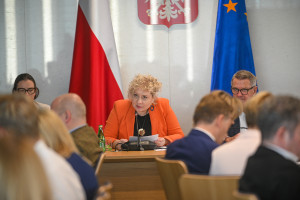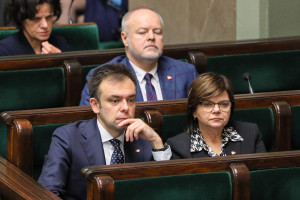"Golden Hour" Saves Lives. 3 Alarm Signals to Call an Ambulance

Stroke is increasingly affecting young people, neurologists warn. More and more patients are also being admitted to hospitals in a timely manner , which allows for the use of modern treatment methods such as thrombolysis or mechanical thrombectomy. A quick response from those around them is crucial.
"Everyone should know the symptoms of a stroke— facial asymmetry, speech disturbances, sudden disability of a limb or half of the body . These are signals that require immediate action—preferably calling an ambulance," said Professor Joanna Siuda, head of the neurology department at the University of Clinical Clinical Center in Katowice, during a press conference.
According to the department's data, the hospital sees over 500 stroke patients annually, including over 300 with acute ischemic stroke. As many as 50 of these patients underwent advanced mechanical thrombectomy. According to Professor Siuda, the increasing number of young patients is due to both growing social awareness and deteriorating lifestyles.
"Low physical activity, a sedentary lifestyle, and an unhealthy diet all increase the risk of stroke. In addition, there are classic factors: hypertension, lipid disorders, and heart disease. Everyone should have regular checkups, even if they feel well," the neurologist emphasized.
Doctors remind patients that stroke treatment encompasses not only the acute phase but also ongoing rehabilitation and long-term care. At the University Clinical Centre in Katowice, patients are referred to a specialized neurological rehabilitation unit after treatment, and then, if necessary, are cared for at the hospital's outpatient clinic.
"The shortest possible time should pass from the first symptoms to the implementation of therapy. We strive to ensure that the door-to-needle time, i.e., the time from entering the hospital to the administration of thrombolytic treatment, is less than 60 minutes, ideally 30-40 minutes," emphasized Magdalena Targosz-Gajniak from the UCK stroke team.
She added that each case is treated individually, but based on clearly defined procedures that enable quick decisions and action.
These efforts have just been recognized internationally. The Department of Neurology with the Stroke Unit at the University of Medical Sciences (UCK) has received the Gold Award from the European Stroke Organization (ESO) as part of the Angels initiative. The award for the first quarter of 2025 was granted for, among other things, exceptionally short treatment times, quality diagnostics, systematic data reporting, and comprehensive stroke care.
"The award is presented by the Angels initiative and the European Stroke Organization to units that undergo a detailed evaluation and report data on the quality of their stroke pathway. Not only are activities in the acute phase assessed, but also nursing care, speech therapy, and rehabilitation—a comprehensive approach to patient treatment," explained Katarzyna Putyło, national coordinator of the Angels project.
She emphasized that awards are presented quarterly in three categories: gold, platinum, and diamond. The hospital in Katowice achieved gold status in both the third quarter of 2024 and the first quarter of 2025.
On average, about a dozen or so hospitals in Poland receive this distinction quarterly, and there are about 184 stroke units in the country.
Copyrighted material - reprint rules are specified in the regulations .
rynekzdrowia








